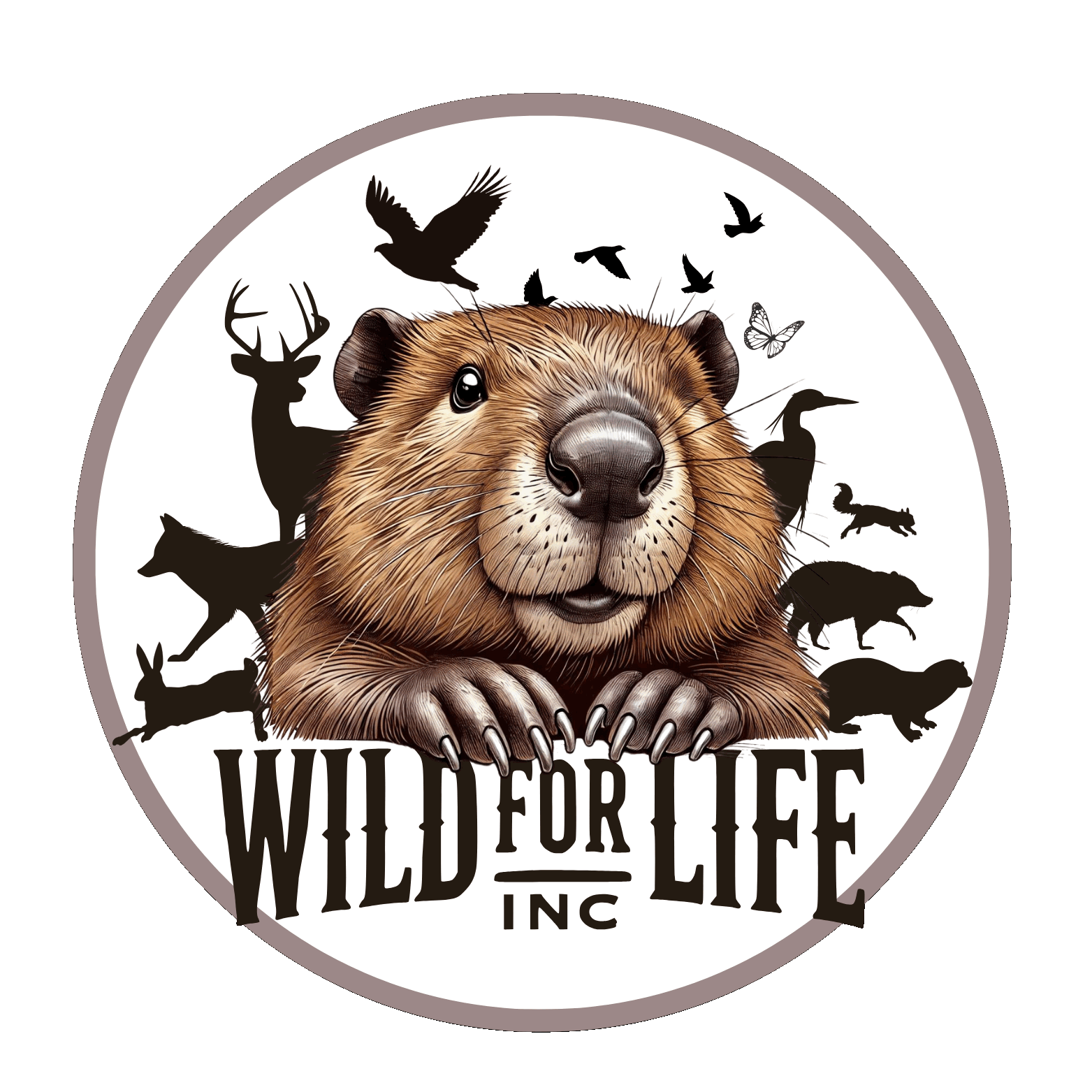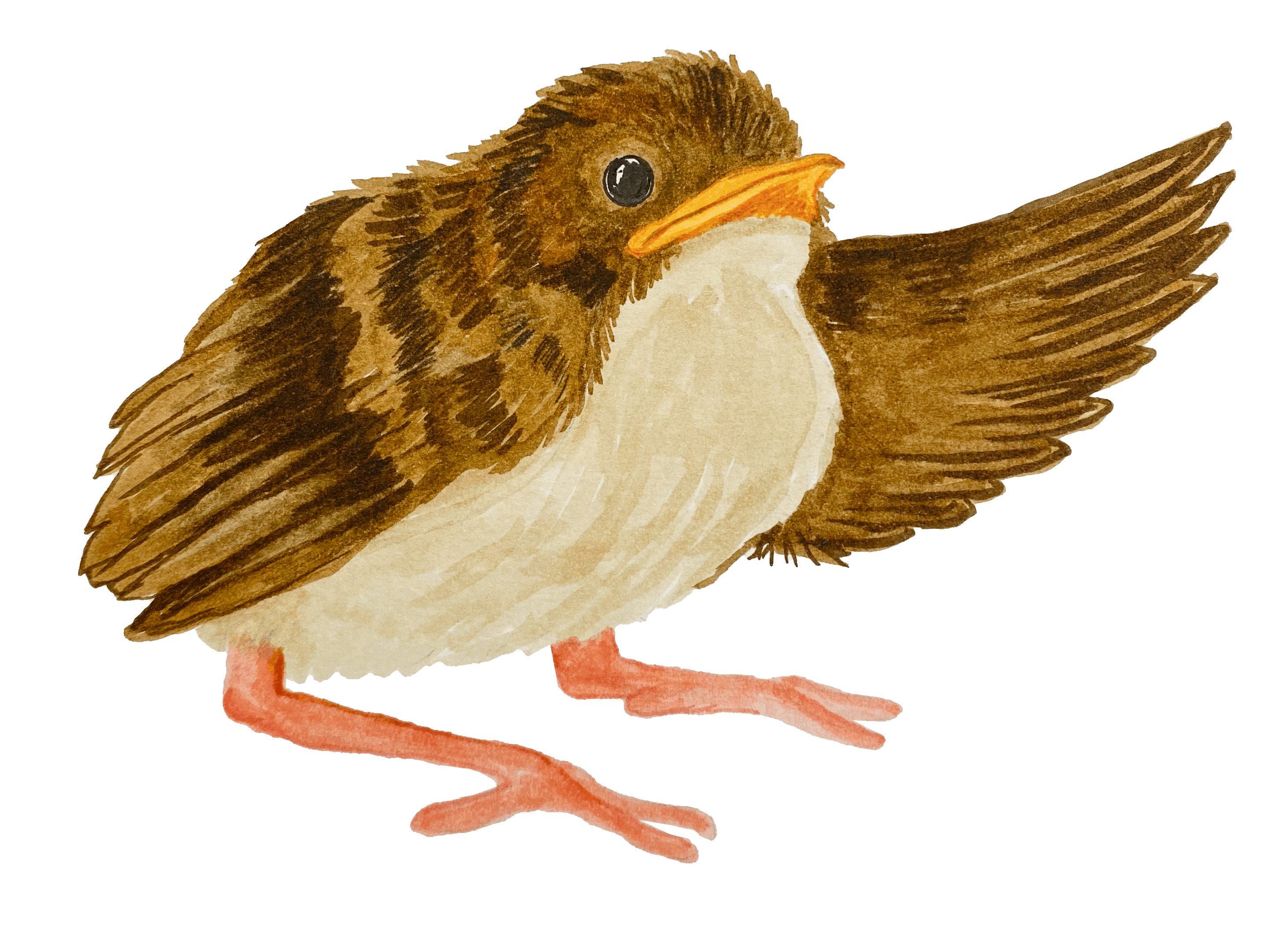

HELP!
I FOUND AN ANIMAL!
First things first...
stay calm!

SIGNS THAT AN ANIMAL NEEDS ASSISTANCE:
-
VISIBLE BLOOD OR WOUNDS
-
NEARLY FEATHERLESS OR COMPLETELY FEATHERLESS/HAIRLESS
-
ON THE GROUND SHIVERING
-
LIMBS THAT APPEAR BROKEN OR DROOPING
-
CAT OR DOG CAUGHT
-
CRYING OUT OR WANDERING FOR LONG PERIOD OF TIME
-
DEAD PARENTS NEARBY
-
BIRDS HITTING A WINDOW (CALLED WINDOW STRIKES)
-
AN ANIMAL WITH FLY STRIKE ON IT (APPEARS SIMILAR TO WHITE RICE)
If you encounter an animal that seems to be abandoned, keep in mind that many wildlife species have unique parenting behaviors. For instance, mother rabbits typically only visit their young at dawn and dusk, leaving them alone during the day to avoid attracting predators to the nest. It’s important to allow parents to care for their young naturally, intervening only when absolutely necessary for the animal's well-being.
Below are some helpful diagrams to help you decide if you should take action:
FOUND A MAMMAL
FOUND A BIRD
FOUND A REPTILE
EMERGENCY RESOURCES:
If you come across wildlife in need, please reach out to us! If we are unavailable or full at the moment with patients there are other resources to get help.
-
Search ‘Animal Help Now’ app/website for local rehabilitators in your area
-
Calling North Country Wildcare at (518) 964-6740
-
Contact The NYS DEC to find a suitable rehabilitator
OTHER ISSUES:
HELP! MY OUTDOOR CAT KEEPS INJURING BIRDS, WHAT DO I DO?
Keeping cats indoors is essential for both their safety and the protection of local wildlife. Outdoor cats are estimated to kill between 1.3 to 4 billion birds and 6.3 to 22.3 billion mammals annually in the United States alone, contributing significantly to the decline of native species. Studies have shown that free-ranging domestic cats are responsible for a larger number of wildlife deaths than other human-related causes, such as vehicle collisions or window strikes. At the same time, outdoor cats are at risk of injury, disease, or becoming lost. To keep indoor cats happy and healthy, providing enrichment is key. Toys, puzzle feeders, and interactive play help satisfy their hunting instincts. Catios (enclosed outdoor spaces) offer a safe way for cats to enjoy fresh air and sunshine without putting wildlife at risk. By keeping cats indoors and enriching their environment, both our pets and wildlife are better protected.
WHAT DO I DO IF BIRDS KEEP HITTING MY WINDOWS?
One of the most effective solutions is to make windows more visible to birds by applying decals, tape, or UV-reflective window films in patterns that break up large reflective surfaces. Spacing these markings no more than 2 to 4 inches apart can help birds perceive the glass as an obstacle. Installing external screens, netting, or shutters can also reduce reflections while adding a layer of protection. Keeping bird feeders either within 3 feet of windows (so birds don’t gain momentum) or over 30 feet away reduces the likelihood of collisions. Additionally, angling windows slightly downward can limit sky reflections, and keeping indoor lights off at night prevents birds from being disoriented by bright lights. These measures not only safeguard birds but also promote a safer environment for wildlife.
HELP AN ANIMAL GOT IN MY HOUSE WHAT DO I DO?
If a bird or small mammal accidentally gets inside your house, it's important to stay calm and help it find a way out safely. First, close off any other rooms to contain the animal in one area, and keep pets or children away. Open doors and windows to the outside, creating an easy exit route. For birds, turn off any lights and ceiling fans, and pull back curtains so they can see the natural light outside, which will encourage them to fly towards it. For small mammals, guide them toward the exit by gently herding them with a broom or a large piece of cardboard. Avoid chasing or startling the animal, as this could cause it to panic and become more disoriented. If the animal is hiding, remain patient and quiet, giving it time to feel safe enough to move toward the exit. In some cases, using humane traps can help catch and release the animal safely outdoors.
WHAT IF I WANT TO CARE FOR THE ANIMAL MYSELF?
Attempting to raise wildlife on your own can do more harm than good, and it can also have serious legal consequences. Most wildlife species are protected by local, state, or federal laws, and handling or keeping them without proper permits is illegal. Rehabilitators are specially trained and licensed to care for wildlife, ensuring animals receive appropriate medical treatment, diets, and preparation for release. Without the right knowledge, improper care can lead to malnutrition, injury, or death, and young animals may become too dependent on humans, making their survival in the wild nearly impossible. By law, injured or orphaned wildlife must be turned over to a licensed rehabilitator who can provide the expert care needed and comply with regulations. If you encounter wildlife, it’s crucial to contact a rehabilitator to avoid legal ramifications and ensure the animal's best chance of survival.
If you encounter an injured or orphaned wild animal, there are some important steps to take while waiting to contact a wildlife rehabilitator. First, limit your interaction to reduce stress for the animal—avoid handling it unless absolutely necessary. If the animal is in immediate danger (e.g., near a road or predator), carefully place it in a quiet, dark box with air holes, using gloves or a towel to avoid direct contact. Do not feed or give water to the animal, as improper feeding can cause severe harm, including aspiration or digestive issues. Keep the animal in a quiet, warm space, away from pets and noise, until you can reach a licensed rehabilitator. It's essential not to attempt to care for or treat the animal on your own—handling wildlife improperly can worsen their condition, and feeding or giving incorrect care can be fatal. Stay calm, minimize contact, and get professional help as quickly as possible.
If you come across wildlife in need, please reach out to us! If we are unavailable or full at the moment with patients there are other resources to get help.
-
Search ‘Animal Help Now’ app/website for local rehabilitators in your area
-
Calling North Country Wildcare at (518) 964-6740
-
Contact The NYS DEC to find a suitable rehabilitator





